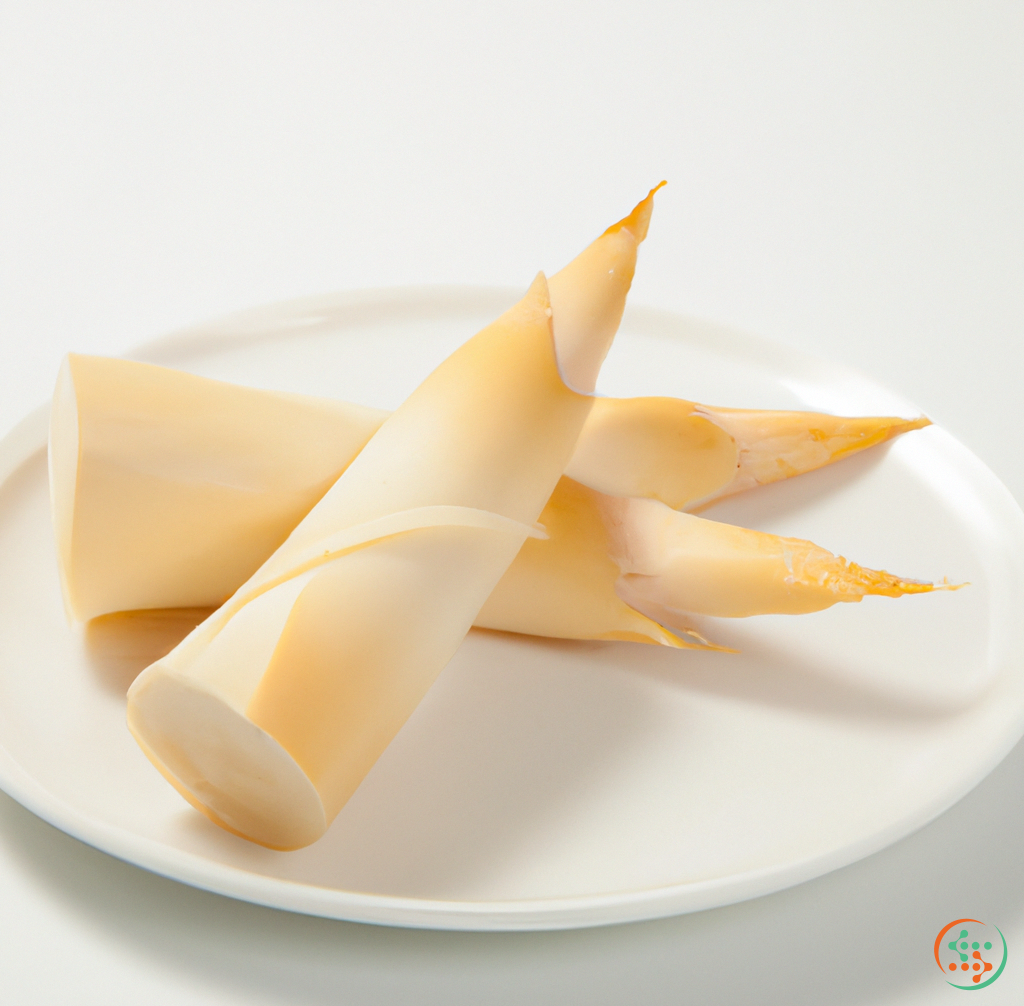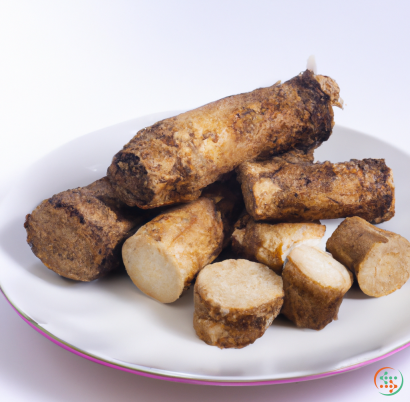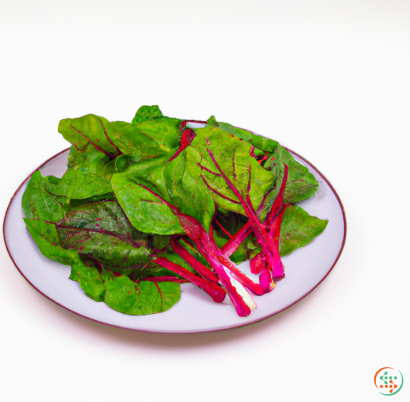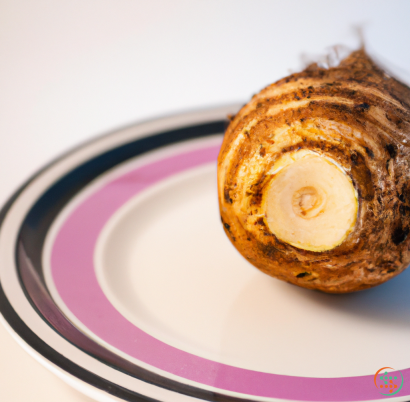Bamboo Shoots
When it comes to vegetables, bamboo shoots are often overlooked. But this unique culinary ingredient has been beloved in traditional Asian cuisine for centuries. Rich in essential vitamins and minerals and possessing a unique, snappy texture, bamboo shoots are beloved by many for their crunchiness and versatility.
What Are Bamboo Shoots?
Bamboo shoots are a staple component of many Eastern cuisines, particularly Chinese, Japanese, and Southeast Asian cooking. As the edible part of the underground stem of the bamboos, they have been used as an ingredient in Asian dishes for hundreds of years.
These perennial evergreen plants (typically in the genus Bambusa) are fast-growing woody grasses that thrive in a wide range of climates throughout the world. The hollow stems contain a white liquid (or “sap”) which yields the edible bamboo shoots.
What Do Bamboo Shoots Taste Like?
Bamboo shoots have a unique texture and taste. They possess a crunchy, snappy fiber that’s subtly sweet and nutty. Their flavor is similar to a mushroom but more delicate and fresh. They’re generally harvested young, which prevents them from becoming too fibrous.
Uses For Bamboo Shoots
Bamboo Shoots make for an excellent ingredient for a variety of dishes. Raw bamboo shoots can be added to salads and stir-fries. Cooked, they can make an excellent addition to soups, curries, and stews. Bamboo shoots are even used in some dessert recipes, such as cheesecake and layer cake.
For all their culinary uses, bamboo shoots are incredibly nutritious. They are rich in vitamins, minerals, and fiber. They are also very low in calories, making them a light but satisfying meal option.
Nutritional Benefits of Bamboo Shoots
Bamboo Shoots are an excellent source of essential vitamins and minerals, particularly vitamins A, C, and K. They also contain an impressive amount of dietary fiber and large quantities of manganese, copper, and zinc, as well as small amounts of iron and magnesium.
In terms of health benefits, due to their high antioxidant content, bamboo shoots are believed to be beneficial in reducing the risk of certain diseases and illnesses. In addition, regular consumption of these shoots can help to boost your immune system and gut health.
Buying, Storing, and Preparing Bamboo Shoots
When purchasing bamboo shoots, it’s wise to look for ones that are firm and pale cream in color. Many supermarkets sell fresh bamboo shoots in their produce section. They can also be found canned, frozen, or dried.
For optimal freshness and texture, it’s best to use raw bamboo shoots within three days of purchase. Fresh bamboo shoots should be stored in an airtight container in the refrigerator. When handling, be sure use gloves to prevent skin irritation.
Bamboo shoots can be eaten raw, steamed, boiled, grilled, or roasted. When preparing fresh shoots, they should be rinsed under running water. If they’re bitter or slightly sour, they should be soaked in water prior to cooking to reduce the bitterness.
Conclusion
Bamboo shoots are an essential component of many traditional Asian cuisines, with their crunchy texture and unique flavor. Packed with essential vitamins and minerals, they’re also highly nutritious and surprisingly low in calories. Easy to find in fresh, frozen, canned, and dried forms, they provide a versatile ingredient with a multitude of culinary applications. With proper storage and preparation, bamboo shoots make for an excellent addition to any meal.
Introduction
Bamboo shoots are one of the most beloved dishes in Asia and around the world. Not only is it a tasty snack, but its production is also incredibly efficient. From the ground it is grown in, to the dinner plate it’s served on, the journey of the bamboo shoot can be complex and interesting. In this article, we will discuss the entire process, from how bamboo shoots are created and selected for harvesting, to how they are prepared and transported to the dinner table.
Creating Bamboo Shoots
Bamboo shoots are created from the many species of bamboo that can be found in both Asia and the Americas. All bamboo plants possess similarities, however there are slight variations between them. The first step in the process of making bamboo shoots is to identify the right conditions for growth. Bamboo is an extremely fast-growing grass, and will only successfully produce shoots during specific time periods. This is known as the “shooting season” and usually occurs between May and August in areas where bamboo grows naturally.
Once the shooting season begins, shoots can be found poking up out of the ground. These are the tender young stems of the bamboo plant, and they can be harvested for consumption or cultivation. In order to encourage healthy shoots to grow, bamboo farmers often use a process called “coppicing”. This involves cutting some of the existing canes of the bamboo plant back in order to stimulate regrowth. New shoots with tight, tender leaves will appear from the cut stem as it regrows.
Harvesting Bamboo Shoots
Once the shoots begin to grow, it is time for harvesting. It is important to harvest at precisely the right moment, as any delay could result in the shoots becoming too fibrous and woody for consumption. Ideally, the shoots should be harvested when they are between 6 and 8 inches in length, and within 48 hours of them pushing themselves out of the earth.
The harvesting process is done by hand, and is quite labor intensive. The earth must be dug around the shoot in order to ensure that it is pulled in its entirety. Once the entire shoot has been removed, it is carefully peeled to remove the fibrous outer layer, revealing the softer, yellowish inner layers. It is important to be aware of any potential danger from pests and rodents, as they may have made their homes in the shoot whilst it was still growing in the ground.
Preparing Bamboo Shoots for Consumption
After the shoots have been harvested and peeled, they are ready to be prepared for consumption. This process can vary significantly depending on the recipe that they are intended to be used in. In general, there are three main methods of preparation: pickling, boiling, and steaming.
Pickling is one of the most common methods of bamboo shoot preparation. To pickle shoots, they are placed in a brine solution. This helps to preserve their natural flavours and makes them very easy to store. Pickled shoots are often used as a relish, or consumed as a simple snack. They have a slightly sweet and sour taste, which is particularly popular in Southeast Asian cuisines.
Boiling is another popular method for preparing bamboo shoots. The shoots are placed in boiling water for a period of time, usually between 10 and 15 minutes. This softens the shoots and helps them to retain their shape. Once boiled, the shoots can be used in soups and stir-fries, and also in salads for added crunch and flavour.
The last method is steaming. This is perhaps the healthiest way to prepare bamboo shoots, as it allows them to retain most of their nutrient content. To steam shoots, they are placed in a bamboo basket above boiling water. This allows them to cook slowly and retain their firm texture. After steaming, they can be used in a variety of dishes, such as steamed dumplings, or salads.
Transporting Bamboo Shoots
After the shoots have been prepared, they must then be transported to the dinner plate. This is done through a combination of air freight, trucks, and other forms of transportation. Air freight is a popular method, as it allows the shoots to remain fresh and reach their destination safely and quickly. When transporting the shoots by truck or other means, special care must be taken to ensure that the shoots do not spoil or become damaged.
On the dinner plate
Finally, the bamboo shoots have made it to the dinner plate. Once there, the shoots can be cooked in a variety of ways, and served alongside other dishes for a delicious and nutritious meal. Whether pickled and eaten as a snack, boiled and tossed in a soup or stir-fry, or steamed in a healthy salad, bamboo shoots are enjoyed by people all over the world.
Conclusion
In conclusion, the journey of a bamboo shoot from the ground it is grown in to the dinner plate it is served on is fascinating and complex. Through the use of coppicing and careful harvesting, bamboo shoots can be grown and selected for consumption. The shoots are then prepared by pickling, boiling, or steaming and can be transported to their destination safely and quickly. Finally, the shoots can be cooked in a variety of ways and enjoyed as a healthy and delicious snack or meal.
| Vitamin B1 | 0.02 mg | |
| Vitamin B2 | 0.05 mg | |
| Vitamin B3 | 0.3 mg | |
| Vitamin B5 | 0.07 mg | |
| Vitamin B6 | 0.1 mg | |
| Vitamin B9 | 0.002 mg |
| Calcium | 0.012 grams |
Daily Value 1.3 g
|
| Iron | 0.24 mg |
Daily Value 0.018 g
|
| Magnesium | 0.003 grams |
Daily Value 0.4 g
|
| Phosphorus | 0.02 grams |
Daily Value 1.25 g
|
| Potassium | 0.533 grams |
Daily Value 4.7 g
|
| Sodium | 0.004 grams |
Daily Value 2.3 g
|
| Zinc | 0.47 mg |
Daily Value 0.011 g
|
| Copper | 0.08 mg |
Daily Value 0.9 mg
|
| Manganese | 0.11 mg |
Daily Value 0.0023 g
|
| Selenium | 0.4 ug |
Daily Value 0.055 mg
|
| Tryptophan | 0.016 grams | |
| Threonine | 0.05 grams | |
| Isoleucine | 0.051 grams | |
| Leucine | 0.082 grams | |
| Lysine | 0.079 grams | |
| Methionine | 0.017 grams | |
| Cystine | 0.013 grams | |
| Phenylalanine | 0.053 grams | |
| Valine | 0.062 grams | |
| Arginine | 0.057 grams | |
| Histidine | 0.025 grams | |
| Alanine | 0.072 grams | |
| Aspartic Acid | 0.249 grams | |
| Glutamic Acid | 0.145 grams | |
| Glycine | 0.051 grams | |
| Proline | 0.129 grams | |
| Serine | 0.075 grams |
| Total Sugars | 0.131141 grams |
per 100g
|
| Palmitic acid (16:0) | 0.04 grams |
|
| Total Saturated fatty acids: | 0.04 g | |
| Oleic acid (18:1) | 0.01 grams |
|
| Total Monounsaturated fatty acids: | 0.01 g | |
| Linolenic acid (18:3) | 0.02 grams |
|
| Linoleic acid (18:2) | 0.08 grams |
|
| Total Polyunsaturated fatty acids: | 0.1 g | |







